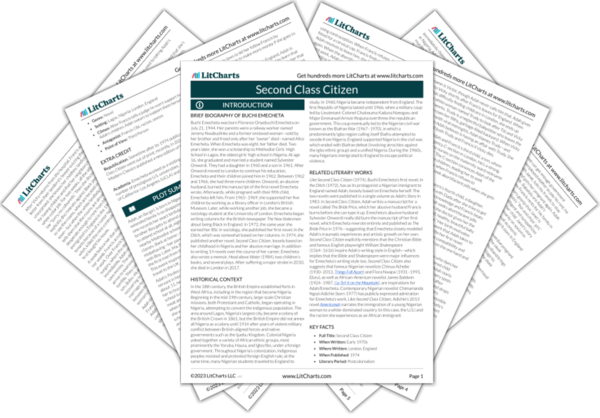In the past, Adah has manipulated cultural mores around women, marriage, and sex to further her own goals. Yet she does not accept the sexist content of these cultural mores. Here, she similarly refuses to accept the racism according to which she is a “second-class” citizen who should apply to less skilled jobs than the ones she’s qualified for. By contrast, Francis seems not only to accept but to embrace English racism as a way of dragging Adah down. Her worry that he’ll accuse her of inventing her pregnancy suggests that he is consistently cruel and unreasonable toward her, while her pleasure at “peaceful nights” without Francis implies that he has been bothering her for sex that she does not find enjoyable.
